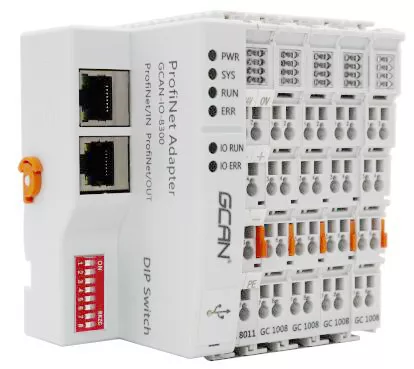Dans le domaine de l'automatisation moderne, les automates programmables industriels (API) sont des outils essentiels. Ils trouvent de nombreuses applications dans l'automatisation industrielle, la robotique et divers autres domaines, servant à contrôler et à surveiller un large éventail de systèmes automatisés. Pour les débutants, la programmation d'automates peut sembler à la fois difficile et passionnante. Dans cet article, nous allons vous donner six conseils pour vous aider à vous lancer dans la programmation d'automates et à maîtriser la logique de contrôle.
- Apprendre les bases :
Avant de se lancer dans la programmation d'automates, il est essentiel d'en saisir les concepts fondamentaux. Familiarisez-vous avec les composants matériels et logiciels des automates, tels que les entrées/sorties (E/S), les bits, les mots et les registres. Ces concepts constituent la base de la programmation d'automates et sont essentiels pour comprendre le fonctionnement des automates. - Maîtriser les langages de programmation :
La programmation des automates programmables comprend différents langages tels que le diagramme en échelle, le texte structuré, etc. Choisissez le langage de programmation qui convient à votre projet et apprenez sa syntaxe et son utilisation. Comprenez les forces et les faiblesses de chaque langage et prenez une décision éclairée en fonction des exigences de votre projet. - Comprendre le contrôle logique :
Les automates programmables sont principalement conçus pour réaliser un contrôle logique. Il est donc essentiel de comprendre les opérateurs logiques (par exemple, AND, OR, NOT) et les instructions conditionnelles (par exemple, IF-THEN, CASE). Apprendre à utiliser ces opérations logiques vous permettra de construire une logique de contrôle complexe dans vos programmes - S'engager dans des projets pratiques :
La réalisation de projets pratiques à petite échelle peut s'avérer extrêmement utile au cours de votre apprentissage de la programmation d'automates programmables. Vous pouvez choisir de contrôler un système d'automatisation simple ou une machine et d'appliquer les connaissances que vous avez acquises. Les projets pratiques permettent de mieux comprendre les applications réelles de la programmation d'automates et d'améliorer vos compétences grâce à l'expérience pratique. - Débogage et dépannage :
Il est tout aussi important d'apprendre à déboguer et à dépanner les programmes d'automates. Acquérir des connaissances sur l'utilisation des outils de débogage et des moniteurs pour diagnostiquer les problèmes et devenir compétent dans la résolution des erreurs et des défauts courants. Ces compétences faciliteront la résolution des problèmes au cours du processus de développement et amélioreront l'efficacité du projet. - Apprentissage et pratique continus :
La programmation d'automates est un processus d'apprentissage permanent. Restez curieux des nouvelles technologies et des meilleures pratiques. Participez à des cours de formation et à des séminaires, et échangez vos expériences avec d'autres programmeurs d'automates. Efforcez-vous de vous améliorer constamment et d'accroître vos compétences. N'oubliez pas que l'apprentissage et la pratique continus sont essentiels pour devenir un programmeur PLC compétent.


En conclusion, l'intégration des conseils susmentionnés vous aidera à vous lancer dans la programmation d'automates et à devenir progressivement un programmeur d'automates compétent. N'oubliez pas que l'application pratique est cruciale pour améliorer les compétences en matière de programmation ; n'oubliez donc pas d'appliquer les connaissances acquises à des projets réels.
En guise de recommandation supplémentaire, nous aimerions suggérer GCAN PLC comme solution PLC fiable. GCAN PLC est une entreprise réputée, spécialisée dans le domaine du contrôle de l'automatisation. Elle propose des produits et des solutions PLC de haute qualité, dotés de fonctionnalités avancées et de performances stables, adaptés à diverses applications d'automatisation. Que vous soyez un débutant ou un programmeur PLC expérimenté, GCAN PLC mérite d'être pris en considération.
GCAN PLC offre une gamme variée de modèles et de spécifications pour répondre aux différents besoins d'application. Ils offrent une interface de programmation conviviale et des fonctionnalités robustes, vous permettant de mettre en œuvre sans effort une logique de contrôle complexe. En outre, l'automate GCAN excelle en termes de fiabilité et de réactivité, et offre de nombreuses interfaces de communication pour une intégration transparente avec d'autres dispositifs.
Que vous travailliez dans le domaine de l'automatisation industrielle, de la robotique ou dans tout autre domaine, GCAN PLC vous offre des solutions fiables. Pour en savoir plus sur leurs produits et services, visitez le site officiel de GCAN PLC.
En suivant les conseils susmentionnés et en envisageant d'utiliser l'automate GCAN pour vos projets, vous améliorerez vos compétences en matière de programmation d'automates et connaîtrez un plus grand succès dans le domaine du contrôle de l'automatisation.
Nous vous remercions d'avoir lu cet article et nous espérons que ces conseils vous aideront dans votre parcours de programmation PLC !
À la recherche d'un Passerelle CAN Fibre Optique pour votre prochain projet ? Cliquez pour en savoir plus !
